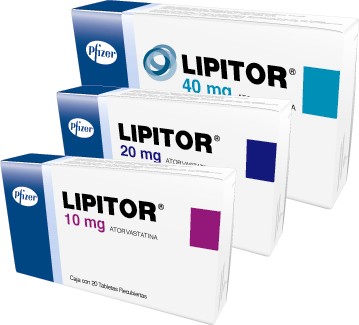Top Class Actions’s website and social media posts use affiliate links. If you make a purchase using such links, we may receive a commission, but it will not result in any additional charges to you. Please review our Affiliate Link Disclosure for more information.

On Dec. 30, 2013, Maureen Tromp of Florida filed her Lipitor lawsuit, joining many other women who claim their diabetic diagnosis wasn’t a fluke.
“Despite its knowledge of data indicating that Lipitor use is causally related to the development of type 2 diabetes and/or blood glucose levels diagnostic for type 2 diabetes, Pfizer promoted and marketed Lipitor as safe and effective for persons such as Plaintiff throughout the United States, including this judicial district,” Tromp alleges.
While the U.S. Food & Drug Administration (FDA) has stepped in, it’s allegedly too late for many.
“On August 11, 2011, the Division of Metabolism and Endocrinology Products of the FDA requested that Defendant make labeling changes for Lipitor based upon the FDA’s comprehensive review, including clinical trial data. In February 2012, Pfizer complied with the FDA request and added the following language to its Warnings and Precautions Section: ‘Increases in HbA1c and fasting serum glucose levels have been reported with HMG-CoA reductase inhibitors, including Lipitor.’”
Prior to this change, there was no mention of diabetes on any warning labels or packaging, leaving plaintiffs like Tromp in danger. However, she also says that despite the February 2012 label change, “Lipitor’s label continues to fail to warn consumers of the serious risk of developing type 2 diabetes per se when using Lipitor.”
Tromp was a long-time user of Lipitor and was never aware that the drug was allegedly giving her a serious, chronic condition. She “was prescribed Lipitor and used it as directed from approximately April 1998 until approximately July 2012. Plaintiff was prescribed Lipitor to lower her levels of low-density lipoprotein (‘LDL’) and as a preventive measure to decrease her risk of developing cardiovascular disease (‘CVD’). Plaintiff agreed to initiate Lipitor treatment in an effort to reduce her risk of developing heart disease. She relied on claims made by Pfizer that Lipitor has been clinically shown to reduce the risk of developing heart disease. Plaintiff developed type 2 diabetes after initiating her Lipitor treatment.”
Like many women who allegedly developed Liptior diabetes, Tromp thought that her diabetes was unrelated to her medication.
“Plaintiff was diagnosed with type 2 diabetes in or about March 2010. As a result, for the rest of her life she must undergo regular testing of her blood glucose levels, adhere to a restrictive diabetic diet, and take medication to control her diabetes. Due to her diabetes, she’s now at markedly increased risk of heart disease, blindness, neuropathy, and kidney disease.”
If Tromp knew about the Lipitor dangers, she could have opted for a different drug or kept a close eye on her glucose levels to catch the diabetes and manage it in time. She wasn’t given this choice due to Pfizer’s actions, according to her Lipitor complaint.
Due Compensation
Tromp is suing Pfizer for failure to warn, negligence, breach of warranties, fraud, constructive fraud, unjust enrichment and punitive damages.
“Defendant was aware of the probable consequences of the aforesaid conduct. Despite the fact that Defendant knew or should have known that Lipitor caused serious injuries, it failed to exercise reasonable care to warn of the dangerous side effect of developing diabetes from Lipitor use, even though this side effect was known or reasonably scientifically knowable at the time of distribution. Defendant willfully and deliberately failed to avoid the consequences associated with its failure to warn, and in doing so, Defendant acted with a conscious disregard for the safety of Plaintiff,” she claims. “Defendant knew or should have known that consumers, such as Plaintiff herein, would foreseeably suffer injury as a result of Defendant’s failure to exercise reasonable and ordinary care.”
The Lipitor diabetes lawsuit is Marianne S. Tromp v. Pfizer Inc., Case No.: 0:13-cv-62813-JIC, in the United States District Court for the Southern District of Florida Ft. Lauderdale Division.
In general, Lipitor lawsuits are filed individually by each plaintiff and are not class actions.
Do YOU have a legal claim? Fill out the form on this page now for a free, immediate, and confidential case evaluation. The attorneys who work with Top Class Actions will contact you if you qualify to let you know if an individual lawsuit or class action lawsuit is best for you. Hurry — statutes of limitations may apply.
ATTORNEY ADVERTISING
Top Class Actions is a Proud Member of the American Bar Association
LEGAL INFORMATION IS NOT LEGAL ADVICE
Top Class Actions Legal Statement
©2008 – 2024 Top Class Actions® LLC
Various Trademarks held by their respective owners
This website is not intended for viewing or usage by European Union citizens.
Get Help – It’s Free
Join a Free Lipitor Class Action Lawsuit Investigation
If you’re a woman who was diagnosed with type-2 diabetes while taking Lipitor, or were diagnosed with diabetes within 90 days or less of your last dose of Lipitor, you may be eligible for compensation. See if you qualify by filling out the short form below.
An attorney will contact you if you qualify to discuss the details of your potential case at no charge to you.
Oops! We could not locate your form.












